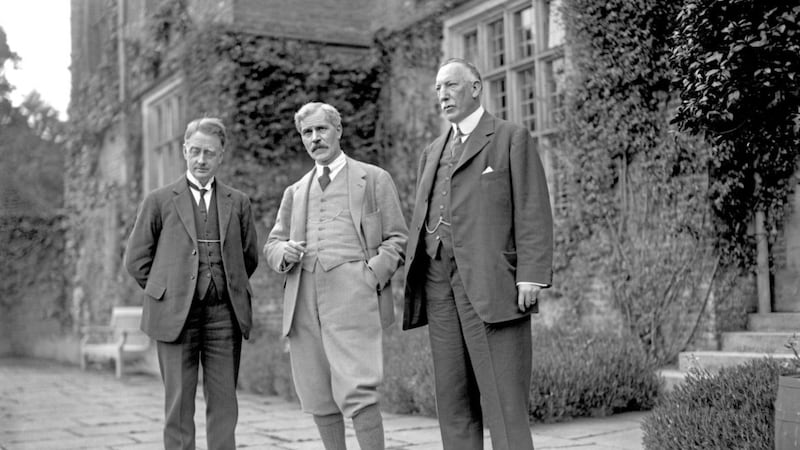Like so many aspects of our contested history, there are different views about the date when the centenary of partition and the creation of the state of Northern Ireland should actually be marked.
However, as the historian Dr Eamon Phoenix points out in his Irish News article today, it was on this day in 1921 that the Government of Ireland Act, which effectively established what was designed to be an administration under permanent unionist control in the six northern counties, passed into law.
It is a considerable irony that the 100th anniversary has been reached at a time when the two main unionist parties are in disarray and the prospect of a border poll with a completely uncertain outcome has never been under more intense discussion.
The turmoil across Ireland a century ago meant that constitutional upheaval was inevitable, but options were available which could have allowed fairer treatment for all political traditions than turned out to be the case.
While partition would always have been unpalatable for nationalists, Dr Phoenix sets out how the 1919 Long Committee at Westminster gave serious consideration to establishing a new state based on Ulster's traditional nine counties.
This would have provided a breathing space allowing both unionists and nationalists to come to terms with changing circumstances, and encouraging other arrangements to evolve within a reasonable period.
Instead, James Craig, the senior unionist of the era, used all his influence to insist on a six-county outcome so that in his words `Protestant representation would be strengthened', even though it meant that the then significant unionist communities in Donegal, Cavan and Monaghan were ruthlessly abandoned.
While Craig’s intervention ensured that sectarianism was at the heart of the new institutions, it needs to be stressed that the evil violence which followed down the decades on the part of republicans, loyalists and on occasions the forces of the state could never be justified and resulted in only misery for all sections of our divided society.
If the old Stormont parliament had made any serious efforts to be inclusive, the sequence of events eventually leading to the 1998 Good Friday Agreement could have been very different.
The Brexit fiasco has since brought us to a stage when the future of partition is at the top of the political agenda. Combined with the loss of the unionist majority at Stormont, it is hardly the anniversary which Craig envisaged.







